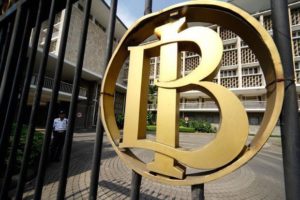
Indonesian external debts hit USD 356,2 billon.
Jakarta, MINA — Indonesia`s external debt growth slowed at the end of February 2018 amounted US$356.2 billion consisting of government and central bank external debt of US$181.4 billion, as well as private external debt of USD174.8 billion, Antara News reported.
Indonesia`s external debt at the end of February 2018 grew at 9.5 percent (yoy), lower than previous month’s growth of 10,4 percent (yoy), influenced by slower public and private sector external debt growth, based on a statement from Bank Indonesia`s Communication Department here on Thursday.
The development of the government`s external debt is in line with fiscal policy to accelerate economic growth through increased productive activities and investment.
Government external debt at the end of February 2018 was recorded at US$177.9 billion consisting of US$121.5 billion of government securities/SBNs (SUN and SBSN/Sukuk) owned by nonresidents and US$56.3 billion of foreign loans.
Also Read: Saudi Arabia Wins Bid to Host World Expo 2030
Government?s external debt at the end of February 2017 was lower than that in the previous month, mainly due to the decrease in government securities owned by nonresident amounted to USD 3.0 billion.
Meanwhile, the cost of government`s external debt is getting lower along with the increasing investor confidence in Indonesia, supported by improving economic fundamentals and Indonesia`s credit rating.
Government external debt is prioritized for productive activities and investment in order to support economic growth, as well as to support the ability to pay the external debt.
Private?s external debt growth slowed primarily due to the external debt in financial sector.
Also Read: 148 Products from Indonesia Promoted at Sarawat Superstore Jeddah
The year-on-year external debt growth of the financial sector at the end of February 2018 was 5.1 percent, slower than previous month?s growth of 6.7 percent. Meanwhile, the external debt in manufacturing, electricity, gas, and water supply, and mining sectors increased than previous month’s growth.
The private sector external debt in the financial, manufacturing, electricity, gas & water supply, and mining sectors reached 72,2 percent, relatively unchanged from the previous period.
The development of external debt in February 2018 remains manageable with healthy structure. The ratio of Indonesia?s external debt to gross domestic product (GDP) is stable at around 34 percent at the end of February 2018.
The ratio is better than the average ratio of peer countries. Based on original maturity, the Indonesia?s external debt structure at the end of February 2018 remained dominated by long-term debt, accounted for 85.5 percent of total external debt.
Also Read: Packaging Industry Supports Halal Ecosystem
Bank Indonesia in close coordination with the Government continues to monitor the development of external debt to optimize the external debt?s role in supporting development financing without incurring the risks that may affect macroeconomic stability. (T/RS5/RS1)
Mi’raj IslamicNews Agency (MINA)
Also Read: Indonesia-Japan Agree on Energy Transition Cooperation




































 Mina Indonesia
Mina Indonesia Mina Arabic
Mina Arabic